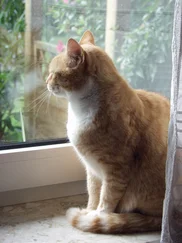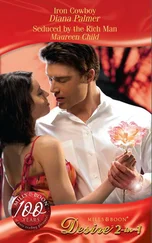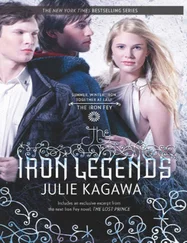'Drink,' said Vercueil, holding out the bottle. His face was changing, the lips filling out, gorged, wet, the eyes growing vague. Like the woman he had brought home. I took the bottle and wiped it on my sleeve.
'You must understand, it is not just a personal thing, this disturbance I am telling you about,' I pursued. 'In fact it is not personal at all. I was fond of Bheki, certainly, when he was still a child, but: 1 was not happy with the way he turned out. I had hoped for something else. He and his comrades say they have put childhood behind them. Well, they may have ceased being children, but what have they become? Dour little puritans, despising laughter, despising play.
'So why should I grieve for him? The answer is, I saw his face. When he died he was a child again. The mask must have dropped in sheer childish surprise when it broke upon him in that last instant that the stone-throwing and shooting was not a game after all; that the giant who came shambling towards him with a paw full of sand to stop into his mouth would not be turned away by chants or slogans; that at the end of the long passageway where he choked and gagged and could not breathe there was no light.
'Now that child is buried and we walk upon him. Let me tell you, when I walk upon this land, this South Africa, I have a gathering feeling of walking upon black faces. They are dead but their spirit has not left them. They lie there heavy and obdurate, waiting for my feet to pass, waiting for me to go, waiting to be raised up again. Millions of figures of pig-iron floating under the skin of the earth. The age of iron waiting to return.
'You think I am upset but will get over it. Cheap tears, you think, tears of sentiment, here today, gone tomorrow. Well, it is true, I have been upset in the past, I have imagined there could be no worse, and then the worse has arrived, as it does without fail, and I have got over it, or seemed to. But that is the trouble! In order not to be paralyzed with shame I have had to live a life of getting over the worse. What I cannot get over any more is that getting over. If I get over it this time I will never have another chance not to get over it. For the sake of my own resurrection I cannot get over it this time.'
Vercueil held out the bottle. A full four inches were gone. I pushed his hand away. 'I don't want to drink any more,' I said.
'Go on,' he said: 'get drunk for a change.'
'No!' I exclaimed. A tipsy anger flared up in me against his crudity, his indifference. What was I doing here? In the exhausted car the two of us must have looked like nothing so much as belated refugees from the platteland of the Great Depression. All we lacked was a coir mattress and a chicken-coop tied on the roof. I snatched the bottle from his hand; but while I was still rolling down the window to throw it out, he wrested it back.
'Get out of my car!' I snapped.
Taking the key from the ignition lock, he got out. The dog bounded after him. In full sight of me he tossed the key into the bushes, turned, and, bottle in hand, stalked down the hill towards Hout Bay.
Burning with rage I waited, but he did not turn.
Minutes passed. A car pulled off the road and drew up beside me. Music blared from it, loud and metallic. In that welter of noise a couple sat gazing over the sea. South Africa at its recreations. I got out and tapped at their window. The man turned a vacant look on me, chewing, 'Can you turn down the music?' I said. He fiddled or pretended to fiddle with something, but the volume did not change. I tapped again. Through the glass he mouthed words at me, then in a flurry of dust reversed the car and parked on the other side of the area.
I searched in the bushes where Vercueil had thrown the key, with no success.
As the other car drove off at last, the woman turned to glare at me. Her face not unattractive yet ugly: closed, bunched, as if afraid that light, air, life itself were going to gather and strike her. Not a face but an expression, yet an expression worn so long as to be hers, her. A thickening of the membrane between the world and the self inside, a thickening become thickness. Evolution, but evolution backwards. Fish from the primitive depths (I am sure you know chis) grew patches of skin sensitive to the fingerings of light, patches that in time became eyes. Now, in South Africa. I see eyes clouding over again, scales thickening on them, as the land-explorers, the colonists, prepare to return to the deep.
Should I have come when you invited me? In my weaker moments I have often longed to cast myself on your mercy. How lucky, for both our sakes, that I have held out! You do not need an albatross from the old world around your neck; and as for me, would I truly escape South Africa by running to you? How do I know the scales are not already thickening over my own eyes? That woman in the car: perhaps, as they drove off, she was saying to her companion: 'What a sour old creature! What a closed-off face!'
And then, what honour is there in slipping off in these times when the worm-riddled ship is so clearly sinking, in the company of tennis players and crooked brokers and generals with pocketfuls of diamonds departing to set up retreats in the quieter backwaters of the world? General G, Minister M on their holdings in Paraguay, grilling beefsteaks over coals under southern skies, drinking beer with their cronies, singing songs of the old country, looking to pass away in their sleep at a great old age with grandchildren and peons hat in hand at the foot of the bed: the Afrikaners of Paraguay joining the Afrikaners of Patagonia in their sullen diaspora: ruddy men with paunches and fat wives and gun collections on their living-room walls and safety-deposit boxes in Rosario, exchanging Sunday-afternoon visits with the sons and daughters of Barbie, Eichmann: bullies, thugs, torturers, killers – what company!
Besides, I am too tired. Tired beyond cause, tired as an armour against the times, yearning to close my eyes, to sleep. 'What is death, after all, but an ascent into the final reaches of tiredness?
I remember your last telephone call. 'How are you feeling?' you asked. 'Tired but otherwise well,' I replied. 'I am taking things slowly. Florence is a pillar of strength, as ever, and I have a new man to help in the garden.' 'I'm so glad,' you said in your brisk American voice – 'You must rest a lot and concentrate on getting your strength back. '
Mother and daughter on the telephone. Midday there, evening here. Summer there, winter here. Yet the line as clear as if you were next door. Our words taken apart, hurled through the skies, put together again whole, flawless. No longer the old undersea cable linking you to me but an efficient, abstract, skybourne connection: the idea of you connected to the idea of me; not words, not living breath passing between us, but the ideas of words, the idea of breath, coded, transmitted, decoded. At the end you said, 'Good night', mother;' and I, 'Goodbye, my dear, thank you for phoning,' on the word dear allowing my voice to rest (what self-indulgence!) with the full weight of my love, praying that the ghost of that love would survive the cold trails of space and come home to you.
On the telephone, love but not truth. In this letter from elsewhere (so long a letter!) truth and love together at last. In every you that I pen love flickers and trembles like St Elmo's fire; you are with me not as you are today in America, not as you were when you left, but as you are in some deeper and unchanging form: as the beloved, as that which does not die. It is the soul of you that I address, as it is the soul of me that will be left with you when this letter is over. Like a moth from its case emerging, fanning its wings: that is what, reading, I hope you will glimpse: my soul readying itself for further flight. A white moth, a ghost emerging from the mouth of the figure on the deathbed. This struggling with sickness, the gloom and self-loathing of these days, the vacillation, the rambling too (there is little more to tell about the Hout Bay episode – Vercueil returned drunk and bad-tempered, found the key, and drove me home, and that was that; perhaps, if the truth be known, his dog led him back) -all part of the metamorphosis, part of shaking myself loose from the dying 'envelope.
Читать дальше












